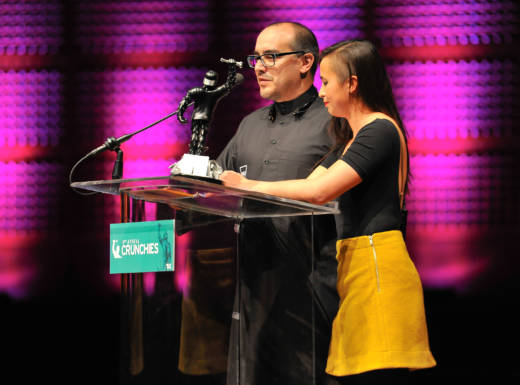Lampkin thinks a lot about these issues. Her company, Blendoor, tries to reduce discrimination in hiring by hiding data like a job candidate’s gender or race and instead highlighting a person’s experience and education.
Like a lot of women in tech, Lampkin believes a “pledge” is meaningless without setting measurable goals. For instance, how many women founders is a firm committed to funding? How many women are they committed to bringing into their VC firms?
According to a 2016 survey by the National Venture Capital Association and Deloitte, only 11 percent of investment partners in VC are women.
“Until there is sort of a peeling back of the layers, and accountability, there really won’t be any significant changes as a result of these pledges,” Lampkin says.
Venture capitalist Ross Fubini agrees. He runs his own firm, XYZ Ventures, and says that real rules and consequences for sexual harassment are needed.
“If you cheat on your taxes, there's an impact to that. If you steal from your company it does include very clear impact from that: You're going to get fired,” Fubini says.
He says the code of conduct he’s working on will spell out the rules and consequences for sexual harassment. The group plans to present a draft to the National Venture Capital Association (NVCA) in September. The hope, he says, is that it will serve as a universal “HR playbook” for venture capital firms. Fubini says he and others are still figuring out how this code of conduct, if at all, could be legally binding.
Last March, the NVCA drafted its own set of “HR best practices” for members, which includes best practices and appropriate behavior when dealing with founders.
But some, like Karla Monterroso of the nonprofit Code2040, are skeptical that the VC industry can police itself.
“Right now we are asking both for the firms and for the tech companies to be both patient and doctor," Monterroso says. "And there is a reason that the medical industry doesn't work that way.”
Part of Monterosso’s job is helping black and Latino students with ideas get in front of VCs. Recently, Monterroso says, she had to hold four companies accountable for sexually harassing young women in her program. A written code of conduct or decency pledge, she says, does not get at the issue -- this deep-seated culture of sexism.
“Until you had to look at that young woman of color in the face and remind her (that) her value is more than her body, it is difficult for you to understand why the issue is as pernicious as it is and requires much more teeth than it does,” she said.
Monterosso suggests there be an ombudsman of sorts to field complaints. But she believes the ombudsman needs to have the ear of the wealthy investors who give venture capitalists the money to fund startups. When there are real monetary consequences to the behavior, only then, Monterosso believes, will there be change.
